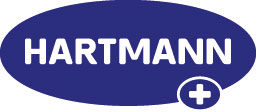Pressure ulcer prevention for people with long-term neurological conditions (LTNCs) who self-manage care and live at home
We have lots of resources, free for everyone to browse and read and share. These resources are suitable for a range of skin and wound care disciplines, roles, and educational purposes.
Delia Muirm, Laura McLarty, Jessica Drinkwater, Carole Bennett, Yvonne Birks, Andrea Broadway-Parkinson, Vanessa Cooksey, Phil Gleeson, Christy Holland, Lisa Ledger, Daniella-Jade Lowe, Andrea McGoverin, Jane Nixon, Tanya Perry, Heidi Sandoz, Brian Rawson, Yvonne Rawson, Nikki Stubbs, Kay Walker, Helen Whitaker, Susanne Coleman, view paper on the JTV website.
This study utilises a participatory research approach, being developed and led with patients and public involvement at the heart of the research and involved throughout. It is aimed at developing a multi-component intervention pathway to help people with long term neurological conditions (LTNC) to be able to identify pressure ulcer risk and manage their PU care at home in conjunction with their carers.
People with long-term neurological conditions (LTNC) include but are not limited to Multiple Sclerosis (MS), Spina Bifida (SB), Spinal Cord Injury (SCI) and Muscular Dystrophy (MD). They are particularly at risk of developing pressure ulcers due to reduced mobility, skin status, sensory perception, and circulatory issues. Many people with LTNC either independently self-manage their care needs at home, or with the help of informal or formal carers.
This study involved four work packages which included development of co-operative inquiry groups that included people with LTNC and their carers along with research staff to develop and run the research, semi-structured interviews with people with LTNC and their carers, focus groups which included healthcare professional stakeholders, and a systems-mapping approach to develop the intervention.
74 participants contributed to the study, including 31 service users, 8 carers, 9 personal assistants and 26 healthcare professional stakeholders. Eight overarching themes were identified including learning, safe routines, third sector and peer support, navigating complex systems, adapting and reacting to change, perceptions of risk, risk negotiation, and supporting roles.
A systems map has been developed and will inform future work to develop and test a multi-component intervention that will help this group of people to manage and reduce their risk of developing pressure ulcers.














